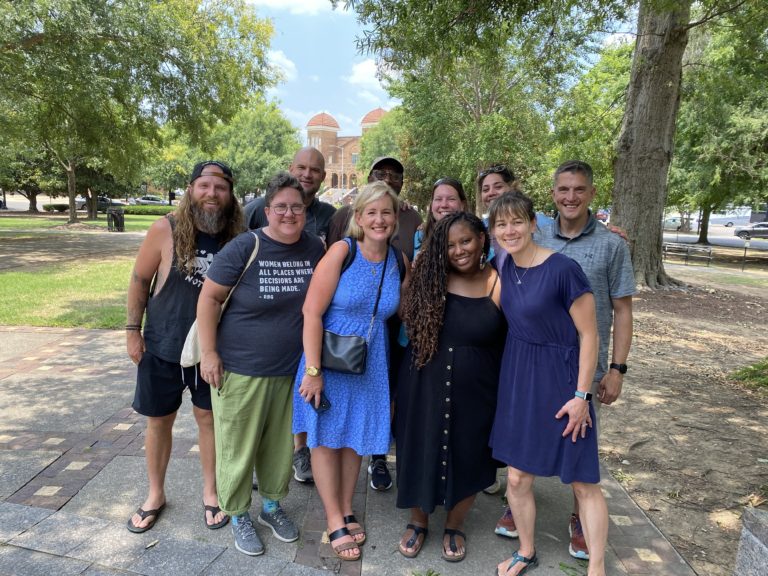Everyday Peacemakers resist the notion that the unjust status quo is “just the way it is’” and give our lives to ushering in a hopeful alternative. And when the struggle for justice gets hard, we don’t give up…we get creative.
With those words ringing in our ears, the 2023 Journey of Hope cohort embarked upon a five-day immersion into the Deep South in June. While there, we were invited by legacy and contemporary civil rights workers to reflect with them on the essential role of faith-based peacemakers in today’s struggle for human rights. Alongside these faith leaders, freedom riders, and freedom fighters who are forever enshrined in the black-and-white photographs of history, we confronted false narratives and grappled with unsettling truths.
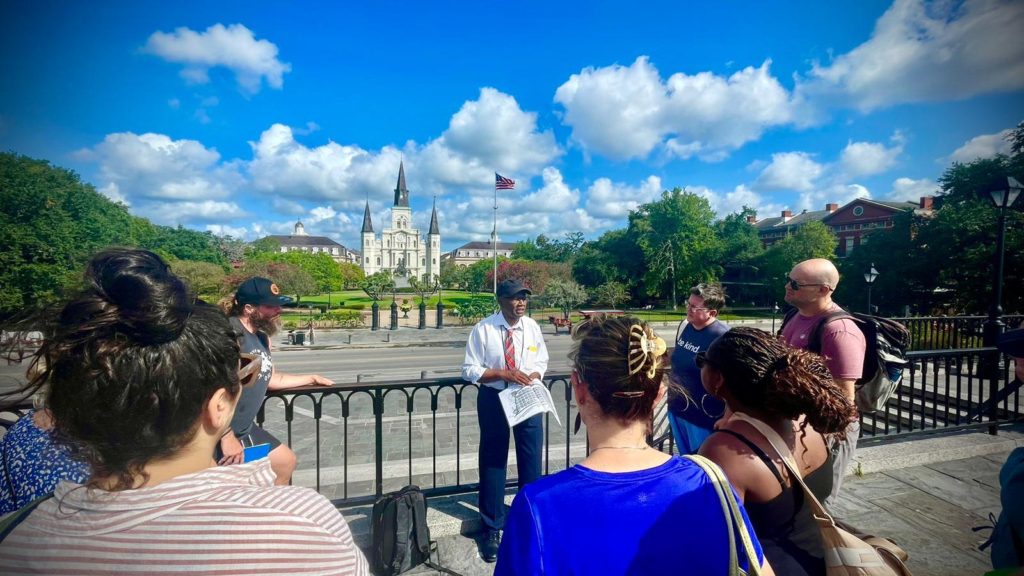
Walking the streets of New Orleans with historian Dr. Leon Waters, we encountered the unholy fusion of the Church and the State that generated an efficient system fueled by greed that benefited white men—at a high cost to everyone else. We read conveniently slanted theologies that became enshrined in policies that dehumanized, enslaved, and terrorized our African siblings. We tracked the evolution of those theologies and policies to the contemporary ones that continue the terror today.
Then, we encountered historical and contemporary reconcilers who—at a high cost to themselves—went and continue to go beyond the observation of injustice to fighting like peacemakers against any and every system that seeks to diminish the image of God in another. In their lives, we saw the revolutionary love of Jesus and embraced the challenge to move beyond observation to embodiment.
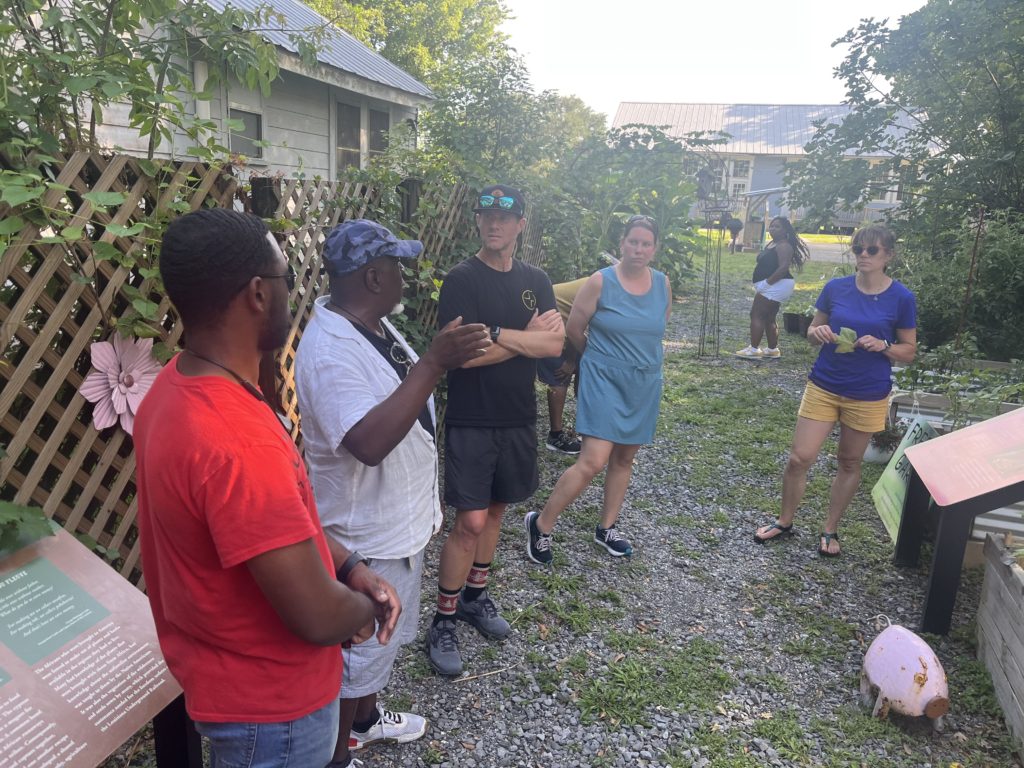
In Donaldsonville, Louisiana, we met Mr. Daryl Hambrick over a lunch lovingly prepared by granddaughters of women once enslaved in this rural town. Mr. Daryl is the local undertaker, swim instructor, and docent of the River Road Museum. He’s an Everyday Peacemaker who believes in the power of story and the necessity of forming a common narrative. In a world saturated with well-organized lies, we were challenged to become Everyday Peacemakers who are truth seekers and truth tellers. In the story of Mr. Daryl’s life and that of the museum, we saw how the truth is bringing to life a city that well-organized lies sought to destroy.
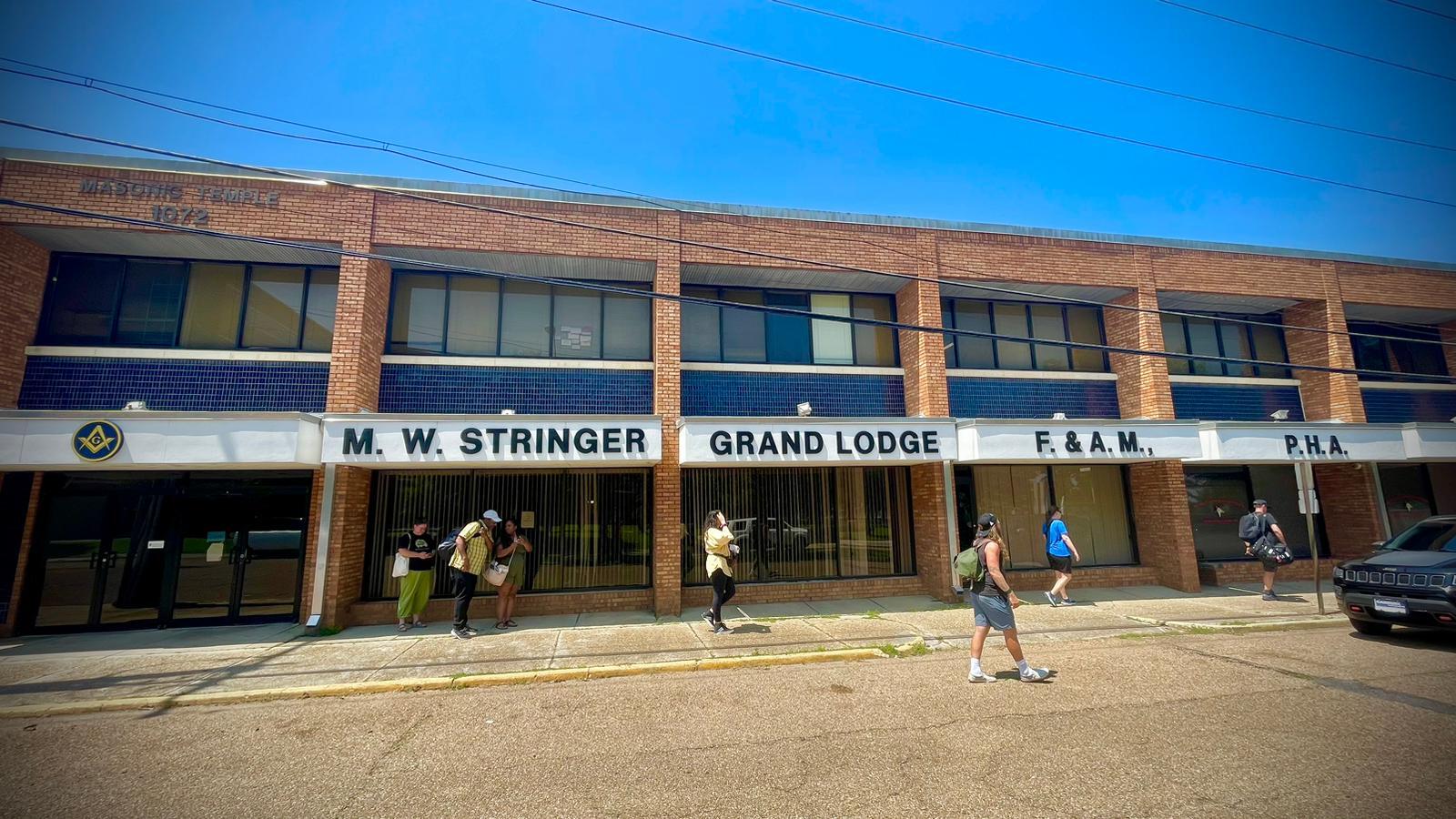
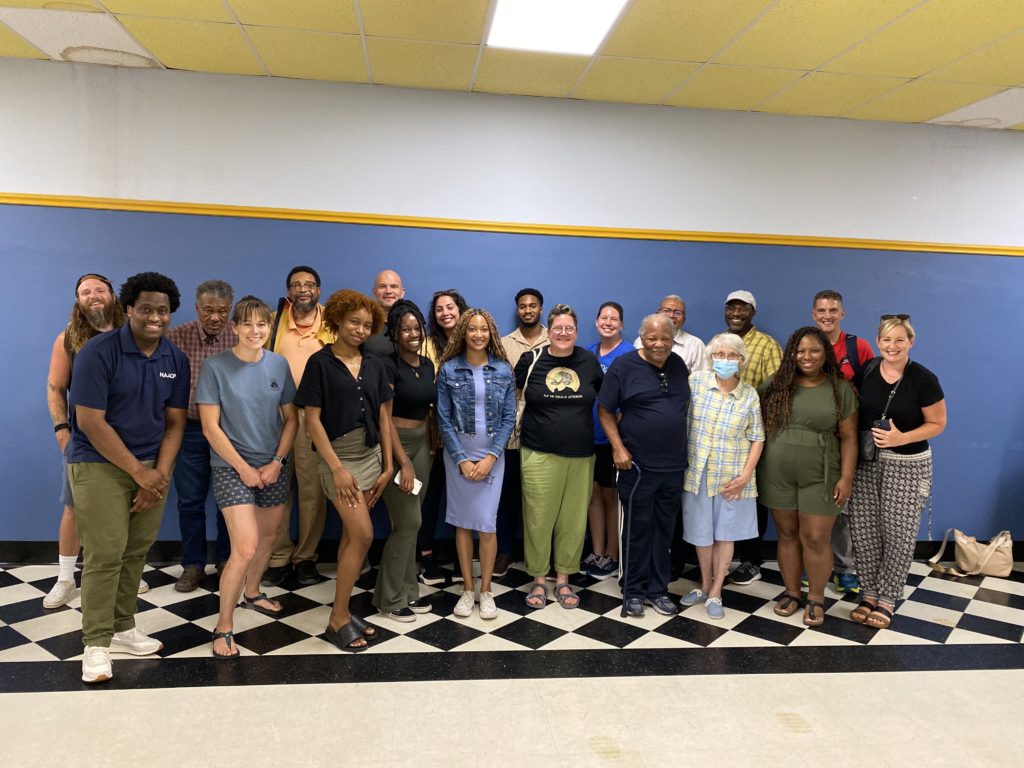
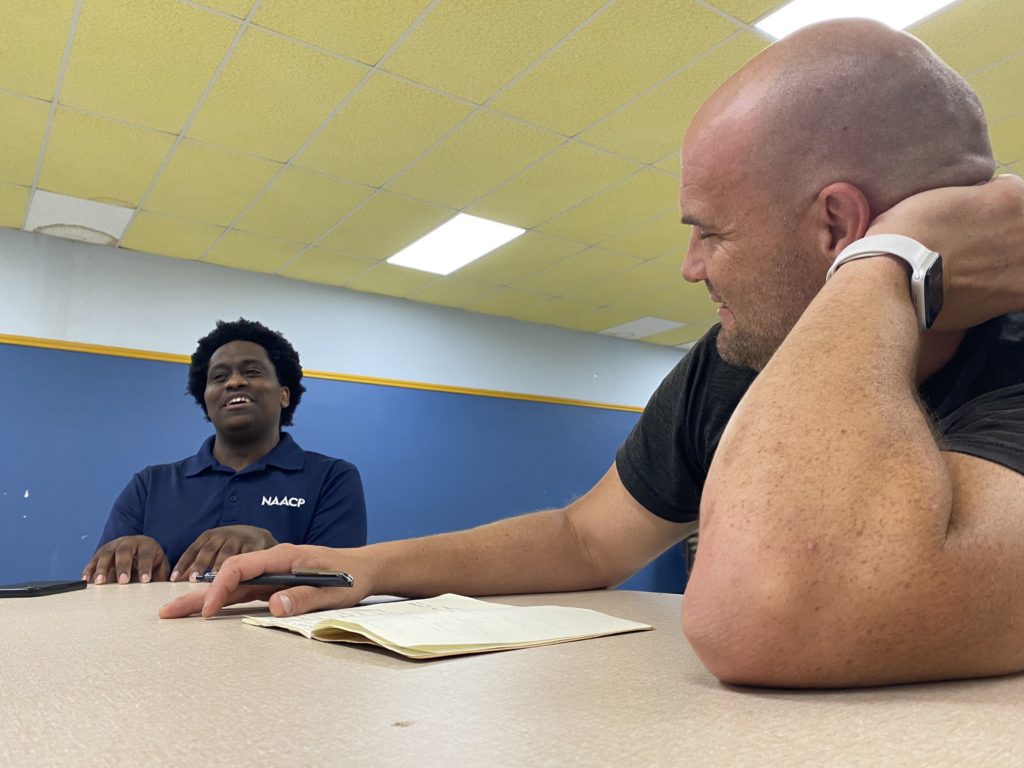
Around tables in Jackson, Mississippi’s historic Masonic Lodge, we met freedom riders and freedom fighters like MacArthur Cotton, who shared stories of violence, resistance, and resilience. They spoke about how their struggle for civil rights expanded our struggle for human rights. With well-honed curiosity, they wondered about our experiences and how, as Christian leaders, we understand our role in ushering in the world that God is making. Pulling from their experiences, they pushed us to embody the incarnation model of Jesus in our peacemaking practice by getting very local and very practical. They challenged us to find the elders of the struggle for justice in our contexts, emphasizing that the elders are not the ones standing on the pedestals but still in the trenches. They exhorted us to get proximate, to get organized, and to keep showing up, especially when it gets hard. In their coaching, we discovered that our hope cannot be found in results, but in the knowledge that love has and will continue to win.
Throughout the Equal Justice Initiative’s Legacy Museum and Peace and Justice Memorial, we encountered the sobering truth that institutional racism never disappears. It only ever evolves. It was a timely revelation as, on that very afternoon, a majority white, majority conservative Supreme Court struck down Affirmative Action without addressing the legacy policies that have and will continue to advantage wealthy white families for generations.
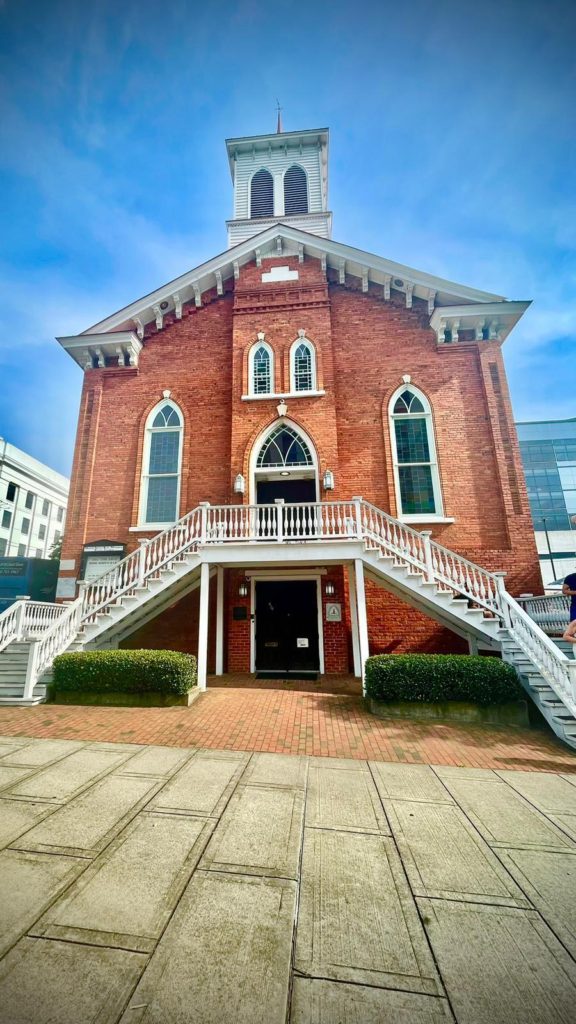
Fittingly, we learned of this decision on the steps of Dexter Avenue Baptist Church. Together, we considered the implications of this next evolution while sitting on the worn wooden stairs that supported the feet of the peacemakers—including a young Rev. Dr. Martin Luther King Jr.—who fought against the unjust, dehumanizing policies of segregation. We concluded that if institutional racism is ever-evolving, so must we be.
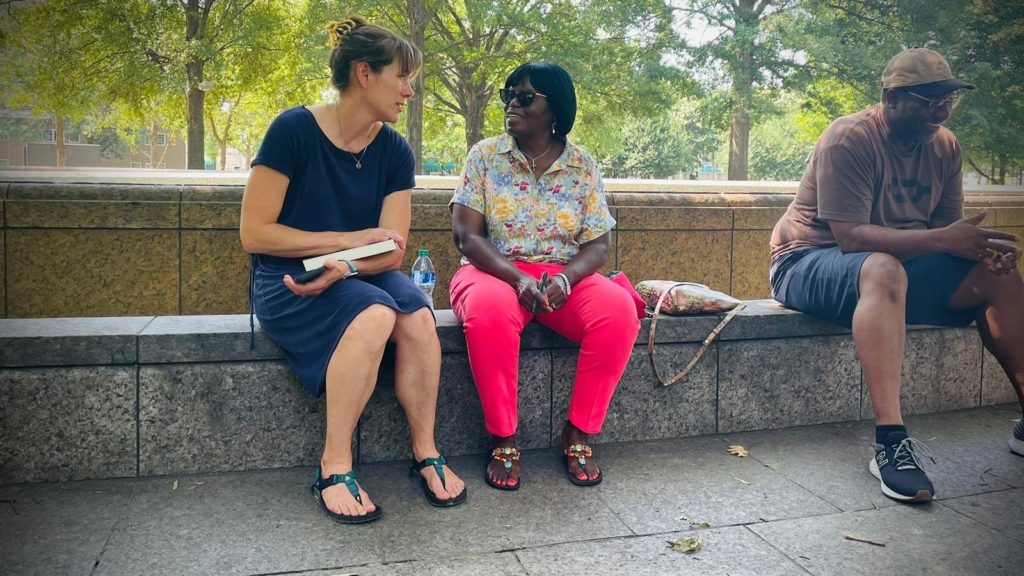
In Birmingham, Alabama, with scars of the struggle still visible on her flesh, Sarah Rudolph Collins trained us in the essential work of creative, non-violent resistance. As the lone survivor of the 16th St. Baptist Church bombing, she declared the truths that anger is natural, even essential, and that pain is the fertile soil within which resilience grows. She concluded with this: “If you’re serious about peacemaking in the Way of Jesus, then you’d better get used to discomfort. When you get punched in the mouth, physically or metaphorically, will you abandon the work, or will you count it as pure joy? The world needs you to count it as pure joy and get back to work!”
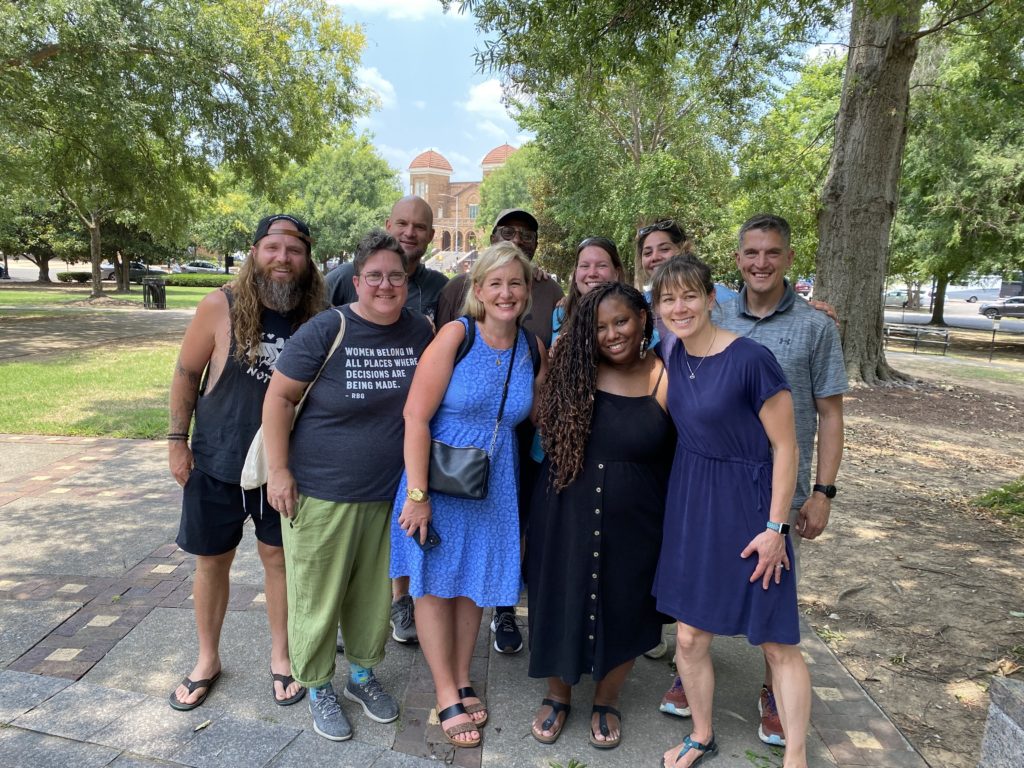
By the immersion’s conclusion, we had allowed the experience to open our souls, awaken our imaginations, and grow our resolve to participate in the world God is making from within the world we’ve inherited. We permitted ourselves unabashedly to feel the weight of a long history of violence. In those we encountered, we observed the source of the hope that fuels their resistance and resilience. Rather than chalking this immersion up as just another consumable, we allowed it to further transform how we live, love, and lead. As a cohort, we now move forward with new tools and experiences for ongoing formation, renovating our leadership, and reforming our organizations.
This September, we will open the 2024 Journey of Hope application process, and this cohort will culminate with a similar immersion into the Deep South (June 24-28, 2024). Because of the election cycle, we forecast widening ideological divides in our families, organizations, cities, and country and increased violence in 2024. Thus, the 2024 cohort will be a critical incubator for Christian Leaders who are:
- Awakening to the crises that dominate our local and national landscape
- Searching for a faith that pursues restoration rather than domination
- Seeking guidance and companionship in moving toward the crises and conflicts within your organization and context with the tools to transform
We invite you to submit your name to our interest list to be notified when applications open and/or nominate a Christian leader.

